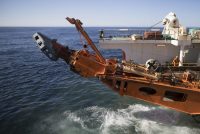
What It’s Like to Swim in an Ocean That’s 100 Degrees
For a moment, as I followed the stories of this summer’s devastating global heat wave, I found it hard to accept that our climate crisis has already become this catastrophic. The tragedies in Greece. The unrelenting, monthlong, historic high temperatures through wide corridors of the United States. The emerging forecasts that none of this is likely to be an aberration.
Then, a few weeks ago, the ocean temperature off Miami hit 95 degrees. A visceral alarm gripped my entire being. I kept repeating the number in stunned disbelief. It couldn’t possibly hold, I told myself — and it didn’t. By the end of the month, at least one reading had soared past 100 degrees.… Seguir leyendo »


















